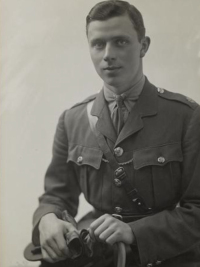Victor Cazalet
Full name: Victor Alexander Cazalet
Alias: Colonel Victor Alexander Cazalet
Alias: Colonel Victor Alexander Cazalet
| Born |
Subscribe now
This information and data is not available because you are not our subscriber yet.
Please click here and get full access to the entire database! |
|---|---|
| Died | |
| Plays | |
| Bio | He was a British tennis player, then a Conservative Party Member of British Parliament for nineteen years. He came from a prominent aristocratic English family. In his political career, he was a noted authority on international affairs and was a veteran of World War I. He became the liaison officer with Polish General Sikorski after the outbreak of World War II. He promoted strong military ties with America before and during the war and was an outspoken advocate for creating a Jewish homeland in Palestine. Cazalet was also an amateur athlete, squash and tennis champion in Great Britain for many years. He became godfather to actress Elizabeth Taylor after developing a friendship with her family. Traveling back to London from Gibraltar, he was killed in the 1943 Gibraltar B-24 crash at age 46 along with General Sikorski and 15 others. Victor Cazalet was born in London, at 4 Whitehall Gardens, on December 12, 1896, the second son of William Marshall Cazalet and his wife, Maud. They were a prominent aristocratic English family whose home had once been the residence of former Prime Minister Sir Robert Peel. The family also had a villa at Cimiez, France, where Queen Victoria was sometimes their guest; she also became Victor's godmother. Their family roots were in Languedoc, and after they were driven abroad, part settled in England and others in Russia. Cazalet's father had achieved affluence in business and was heir to his own father's fortune as an industrialist in Russia.Cazalet's mother was the daughter of a Scottish baronet, Sir John Heron-Maxwell of Springkell, who when he died had left his family penniless. Cazalet had three siblings, Edward, Thelma (later Thelma Cazalet-Keir) and Peter. He was educated at Eton College and the University of Oxford. He was commissioned into the Queen's Own West Kent Yeomanry in 1915 and reached the rank of Captain. After serving in the front line during World War I, Cazalet received the Military Cross for gallantry in 1917. He later took part in the conference leading to Treaty of Versailles, which ended the war. From 1918 to 1919 he was a member of the British staff in Siberia. From 1924 to 1926 he acted as a private secretary in the parliament where he served under the President of the Board of Trade and later under the Colonial Secretary. He was first elected at the 1924 general election, serving as MP for the Chippenham constituency in Wiltshire until his death. During the Spanish Civil War, he was a strong supporter of General Franco and the fascists, serving on the 'Friends of National Spain' committee. However, before World War II, he opposed, with Winston Churchill, the appeasement of Adolf Hitler by Neville Chamberlain's government. Cazalet became the liaison officer with Polish General Władysław Sikorski in 1940. And as a Member of Parliament, he was a member of the Anglo-Polish committee formed in 1941. He visited Russia with Sikorski in 1942. During that same period he was made chairman of the House of Commons committee on refugee problems, and was stationed at the British embassy in Washington. Cazalet also termed himself "a booster for America," and had publicly expressed the gratitude of British subjects for the aid that America gave Britain before and after World War II began. In 1940 he wanted Britain to give the U.S. a free port in the West Indies, with all sovereign rights, in order that the U.S. Navy could have a port closer to South America. He also hoped that the U.S. and British navies would join together after the war so that their navies could "pool their policies and ideas," he said. It was an opinion he expressed going back to the disputes at the 1927 Geneva Naval Conference, and which he continued during the revival of those efforts which led to the London Naval Treaty in 1930. He feared that a failure of Great Britain and the United States to reach an agreement among themselves, regardless of the other countries involved, would lead to a dangerous competition in shipbuilding between their two countries which would seriously jeopardize world peace. "Each country should build the ships it needs without regarding the other navy as a possible enemy," he said. A year and a half after the war in Europe had begun and after the German bombing of London had continued, Cazalet urged the American government to keep the life line between their countries open. "The victory can be won," he emphasized, "if the stuff gets over." He added that Britain was deeply grateful for the help they had already received from the U.S. Cazalet had become chairman of the House of Commons Palestine Committee, where he described the plight of Britain under siege as connected to that of the Jews who were being driven from Europe by the Nazis. |
| Misc | Subscribe now |
| Tournament | AO | RG | W | US | Win-Loss |
|---|---|---|---|---|---|
|
Subscribe now
This information and data is not available because you are not our subscriber yet.
Please click here and get full access to the entire database! |
|||||
